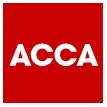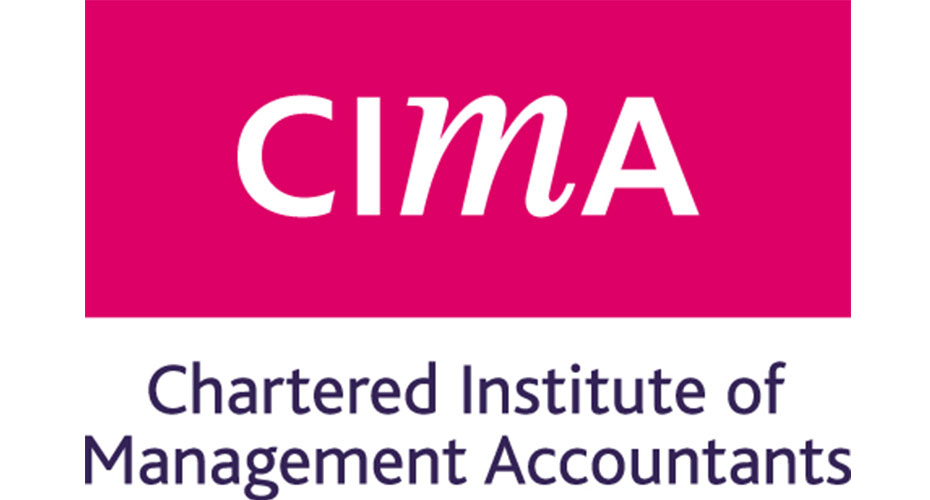| UCAS code | 1234 |
|---|---|
| Duration | 1 year full time |
| Entry year | 2024 |
| Campus | Streatham Campus |
| Discipline | Accounting |
| Contact | Web: Enquire online Programme Director: Chie Min Teng |
| Typical offer | A 2:2 with honours or equivalent in Accounting, Finance or related discipline. |
|---|---|
Overview
- A transformative programme for students interested in gaining deeper insights into accounting and finance
- Hone your analytical and communication skills by writing both a quantitative and qualitative dissertation in a highly supportive environment
- Learn about financial and management accounting processes combined with practical training on leading databases and software systems
- Be equipped with the necessary coding skills to harness the benefits of Big Data and understand how it can be used to detect fraud in corporate accounts
- Take relevant and contemporary modules such as coding analytics, sustainable and responsible finance, financial technology (FinTech), digital business models, and various modules specialising in specific areas of accounting, finance and banking
![]()
UK Business School of the Year
Times Higher Education Awards 2022
![]()
Top 5 for Accounting and Finance
5th in The Times and The Sunday Times Good University Guide 2024
![]()
Learn from experts in the field of sustainable and responsible finance management
![]()
Specific modules can enable exemptions from professional accountancy exams
Accreditations


ACCA
ACCA is a globally-recognised qualification that can set you on a path towards a promising career as a finance professional. Students taking the BEA3022 Auditing module may be eligible for exemption from ACCA’s Audit and Assurance paper.
CIMA
The Chartered Institute of Management Accountants is the world’s largest professional body of management accountants with the most useful accounting qualification for a career in business. The CIMA qualification is designed to bring together management accounting, financial accounting and business, so you’ll have the practical skills employers need, making you qualified to work in a wide range of roles. You may be eligible for exemption from up to 11 CIMA exams upon completion of the MSc Accounting & Finance programme.
Entry requirements
A 2:2 with honours or equivalent in Accounting, Finance or related discipline. Candidates may also offer ACCA papers F1-F9. We do consider all applications where there is evidence of exceptional performance in modules relevant to the programme of study, significant relevant work experience or professional qualifications such as CFA(R), ACCA, ICAEW, ICAS and CIMA.
Prerequisites
In order to apply for the MSc Accounting and Finance, applicants should have passed at least two modules in Financial Accounting at undergraduate level.
Entry requirements for international students
English language requirements
International students need to show they have the required level of English language to study this course. The required test scores for this course fall under Profile B2. Please visit our English language requirements page to view the required test scores and equivalencies from your country.
Course content
This programme is available for 12 months full-time study. The taught modules will be delivered in the first two terms while the dissertation modules (which include teaching sessions) will be delivered from June to September. The programme in its entirety runs from September to September and is University-based.
- During the programme you will study modules totalling 180 credits.
- Please note that programme structures may be subject to change.
- Descriptions of the individual modules are given in full on the Business School postgraduate module list.
This pathway allows you to select specific modules that will allow you to graduate in MSc Accounting and Finance with Sustainable Finance.
The Sustainable Finance pathway will equip you to embed green and sustainable finance principles and practice into your advice, analysis, actions and decision. The finance industry is increasingly recognising the importance of integrating sustainability considerations into decision-making processes and companies, investors, and regulators are seeking professionals who possess both financial expertise and knowledge of sustainable practices. This pathway will provide you with specialist skills in this area.
You will learn from research expertise developed within the Exeter Sustainable Finance Centre, which will introduce you to cutting-edge theory and practice in sustainable and responsible finance. Leading academics actively engaged in research on climate finance, environment and sustainability will deliver these modules, which are designed to give insight into theory that has been important in shaping agendas relating to global sustainability.
Students must study 60 credits from:
| Code | Module title | Credits |
|---|---|---|
| BEAM052 | Corporate Governance and Finance | 15 |
| BEAM104 | Sustainable and Responsible Finance | 15 |
| BEAM103 | Climate Finance and Investments | 15 |
| BEAM102 | Financial Institutions Risk Management | 15 |
Fees
2024/25 entry
UK fees per year:
£19,100 full-time
International fees per year:
£31,000 full-time
Scholarships
We invest heavily in scholarships for talented prospective Masters students. This includes over £5 million in scholarships for international students, such as our Global Excellence Scholarships*.
For more information on scholarships, please visit our scholarships and bursaries page.
*Selected programmes only. Please see the Terms and Conditions for each scheme for further details.
Teaching and research
This programme is taught using a blended approach with a mixture of accompanying material delivered through our virtual learning platform and in-person teaching sessions. We deliver knowledge through the accompanying material, and use in-person teaching sessions for discussion and application of what you learn. There are also hands-on workshops for modules such as coding analytics.
Lectures
The aim of lectures is to give you information on ideas that are central to the module and to help you in developing your understanding of complex ideas. Many of the teaching materials for lectures are made available to you electronically to accompany the notes you take during the lecture. Lectures are given by a range of staff members, including leading professors, who integrate their latest research findings into the teaching that you receive. Guest lecturers, including members of industry, also contribute to some modules.
Seminars and tutorials
Seminars and tutorials involve an in-depth exploration of the issues covered in lectures as well as giving you the opportunity to discuss various concepts and theories and receive feedback on your written assignments.
Taught by leading experts
You will be taught by internationally respected academics who are at the forefront of their research. We draw upon disciplines across the social sciences and give emphasis to the dynamic nature of enterprise, global connectivity and the management and leadership of the global challenges that lie ahead.
Research-led teaching
Our research is rated as world-leading or internationally excellent in the Research Excellence Framework (REF) 2021.
Accounting at Exeter has a long history of research excellence and we undertake research in a variety of topics. These topics include taxation, corporate governance and capital markets, to broader sustainability and social accounting.
By choosing to study your degree at the University of Exeter, you’ll benefit from our faculty's research strengths in sustainable development, the implications of accounting in the wider context, and other contemporary areas in accounting and finance.
Our research is driven by the understanding that accounting continues to play a fundamental role in organisations and society. As a result, many of our inspiring academics are regularly invited to advise policy-makers at institutions including H.M. Revenue and Customs, International Accounting Standards Board, and the Bank of England.
Conduct your own research
Your research questions for both of this programme’s dissertations will be based on contemporary topics and issues faced by organisations and society. This will give you the opportunity to engage in research that could have an impact, which could lead to you undertaking a PhD and publishing in quality journals.
The Business School is home to the following research centres
- Centre for Entrepreneurship
- Centre for Innovation in Business Education
- Centre for Simulation, Analytics and Modelling (CSAM)
- Exeter Centre for Social Networks (ECSN)
- Exeter Centre for Leadership (ExCL)
- Exeter Sustainable Finance Centre (ESF)
- Initiative in the Digital Economy at Exeter (INDEX)
- Land, Environment, Economics and Policy Institute (LEEP)
- Research Methods Centre
- Tax Administration Research Centre (TARC)
- The Exeter Centre for Circular Economy (ECCE)
The University of Exeter offers a lot of optional modules which meant I could really adapt my course to suit me. I’ve discovered new interests and widened my expertise whilst also developing my interpersonal and practical skills. I really enjoy the variety the programme offers, if you want to push yourself and broaden your knowledge this course is perfect.
Dimitrios
MSc Accounting and Finance
The structure of the course is well designed, with a mix of lectures and practical exercises. In particular, some classes involve the application of data processing software which is an important skill to gain in this era of Big Data. After the first semester, I was able to proficiently manipulate Excel and STATA, and even write simple code, which will be very helpful for my future work.
Li
MSc Accounting and Finance
Careers
Preparing you for success
This Masters degree is designed to prepare you for a successful career, wherever in the world you plan to work. We’ll prepare you for your career by teaching you advanced communication and technical skills, team-working and independent research, project-management and the very latest specialist knowledge.
Develop employer-valued skills
An MSc in Accounting and Finance will enable you to develop the professional and financial skills and subject expertise that will make you a valuable asset from day one of your career.
Global demand for accountants and financial managers means you can compete across a variety of services in a huge range of sectors and businesses, from vast multi-nationals to small and medium enterprises, public sector organisations and charities.
Select modules to suit your future career
By carefully selecting the research topic for your dissertation and your optional modules such as derivatives, investment analysis, banking or international financial management, you can develop a specialisation to enhance your employability.
Career paths
Graduates can look forward to working in a diverse range of roles including:
- Accountants
- Auditors
- Consultants
- Financial Analysts
- Portfolio Managers
- Investment Bankers
- Strategic Planners
Potential global employers
- ‘The Big Four’ Accounting and Professional Services firms: Ernst & Young, Deloitte, KPMG and PwC,
- Baker Tilly
- Grant Thornton
- Accenture
- BAE Systems
- Unilever
- Bank of Beijing
- Bank of China (Hong Kong)
- Procter & Gamble
- Coca Cola
- NHS Trusts
- Deloitte
- Chanel
- L’Oreal China
Our Careers & Employability team will help you identify your career path and support your route to a fulfilling global career.
We offer a fantastic Double Degree option
Spend your first year at Exeter and a second year at another world-class international institution, resulting in two Masters degrees and the opportunity to expand your knowledge even further. We offer a fantastic Double Degree option with:
- Grenoble Ecole de Management in France
For more information on Double Degrees and other postgraduate study abroad opportunities, visit the Business School’s Study Abroad webpages.











